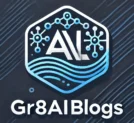Here’s Why AI May Not Steal Jobs, But Make Workers More Efficient
As the conversation surrounding artificial intelligence (AI) intensifies, fear and fascination share the stage. While many worry that AI will lead to job losses, new evidence suggests a different narrative—one where AI enhances human productivity rather than replaces it. This blog post explores how AI is reshaping the workforce landscape, making jobs more efficient and highlighting the importance of human creativity and adaptability in this new era.
The Evolution of Work: A Historical Perspective
Throughout history, technological innovations have always prompted fears of job displacement. The Industrial Revolution, for instance, transformed agrarian societies into industrial powerhouses, leading to both job loss and the creation of new opportunities. Similarly, AI is poised to revolutionize workplaces, but this time the outcome could be markedly different:
- Job Transformation: AI often automates mundane tasks, freeing up employees to focus on creative and strategic responsibilities.
- Enhanced Job Roles: Rather than taking jobs away, AI is transforming them into more specialized roles that require a human touch, such as overseeing AI operations.
AI and Human Collaboration
The integration of AI into various work environments creates a unique partnership between technology and human workers. This partnership emphasizes the strengths of both parties:
- Efficiency Gains: AI can process vast amounts of data quickly, allowing humans to make decisions based on real-time insights.
- Creativity and Innovation: Humans excel in creative problem-solving, emotional intelligence, and relationship-building—areas where AI still struggles.
Case Study: The Marketing Sector
In the marketing industry, AI tools can analyze consumer behavior and trends at an unprecedented scale. Marketers can leverage this data to create targeted campaigns that resonate with audiences effectively. As a result, human marketers are no longer bogged down by data analysis:
- Focus on Creativity: They can spend more time developing innovative content and strategies.
- Informed Decision Making: Marketers make informed choices supported by AI insights, significantly increasing campaign success rates.
AI as a Catalyst for New Job Creation
As some jobs are modified or eliminated, new roles are emerging that cater to a workforce shaped by AI. These new jobs often blend human skills with technological prowess:
- AI Trainers: Individuals are needed to train AI systems, teaching them to respond accurately and ethically.
- Data Analysts: While AI processes data, humans will interpret the results and devise actionable strategies.
- Ethical AI Consultants: As AI usage expands, professionals will be required to ensure these technologies are used responsibly.
Skills for the Future Workforce
To thrive in an AI-enhanced workplace, certain skills will become increasingly important:
- Adaptability: The ability to embrace change and learn new technologies will be invaluable.
- Emotional Intelligence: Strong interpersonal skills will help individuals work effectively with machines and each other.
- Critical Thinking: Analyzing data and making informed decisions based on AI insights will be crucial.
Embracing the AI Revolution
Organizations looking to harness the benefits of AI must foster a culture of innovation and continuous learning. Here are some strategies to implement:
- Invest in Training: Companies should invest in upskilling their workforce to adapt to new technologies.
- Create Collaborative Workspaces: Design office environments that promote teamwork between AI and human workers.
- Encourage Creativity: Allow employees the space to explore innovative ideas without the constraints of traditional processes.
The Role of Employers
Employers play a crucial role in this transition. Companies that embrace AI as an ally rather than an adversary can create a more efficient workforce:
- Transparent Communication: Keeping employees informed about AI integration plans can reduce fears and increase acceptance.
- Focus on Well-being: Ensure that the work environment remains supportive and prioritizes employee well-being in a tech-driven landscape.
The Path Forward: A Balanced Approach
As we look ahead, the future of work will undoubtedly be influenced by AI. However, this influence will likely result in a synergistic relationship between human intelligence and machine efficiency. By leveraging AI, we can:
- Enhance Productivity: Enable workers to accomplish more in less time, leading to heightened job satisfaction.
- Foster Innovation: Create environments that stimulate creative thinking and problem-solving.
- Adapt to Change: Equip the workforce with the skills necessary to navigate the evolving landscape intelligently.
In conclusion, rather than fearing the impact of AI on our jobs, it is crucial to focus on how these technologies can uplift and empower the workforce. For more insights on how to navigate the future of work, consider exploring resources and expert guidance available at Kensington Guest Suites. Together, we can embrace the potential of AI to create a more efficient, creative, and fulfilling work environment.
Discover more from
Subscribe to get the latest posts sent to your email.

